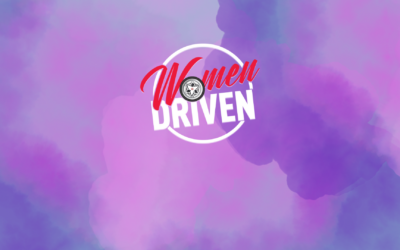Although no concrete stats are available, most auto industry observers would agree that more women have found career success in the retail auto sector in the last 20 years than ever before.
Although this is an encouraging development, those same observers would also agree than more needs to be done to achieve gender parity in the retail auto sector.
“This industry has come a long way from two decades ago,” says Susan Gubasta, Dealer Principal at Mississauga Toyota and former President of the MVRO. “Twenty years ago, I was the only woman in the room, but I was always made to feel comfortable by my male peers. Today, the balance is shifting, and I’m seeing more women working in executive positions, as CEOs and middle managers, which is great.”
What has moved the needle forward for greater gender parity? “For one, hiring practices at dealerships have become more standardized, and more sensitive to potential hiring biases,” says Carlee Fraser, Vice President/General Manager at Fraser Automotive Group of Companies. “Standardized hiring practices means that the best person will get the job, regardless of their gender. Let’s face it: We need to have a mix of gender and races to facilitate growth in our industry. Gender biases should be obliterated.”
As more women have migrated to the auto sector, they have excelled in various roles. “We’re seeing women dealer principals, on the shop floor, as service managers, as controllers, and in senior management,” says Nicole Pereira, President and CEO at Cambridge Centre Honda and a board member of the MVRO. “We need to continue to hire women in all areas and support their career advancement.”
Business leaders also need to create an environment where talent is recognized and advancement is encouraged. That often means promoting from within. “In 2012, we hired a female receptionist, says Francine Floreani, Dealer Principal, Great Lakes Honda in Sault Ste. Marie. “During her work career, she had three children but we always found a job for her. We saw great potential in this person and so we gave her more and more responsibilities. She eventually moved into our finance department, and now she’s our F&I manager, and she’s excelling at the role. It’s a matter of identifying a woman’s strengths and channeling them in the right career direction.”
Mentorship plays a role in achieving gender parity and the advancement of women. “I’ve been mentoring women and younger employees since I first joined the business in 2010,” says Floreani. “I tell young people they don’t need an automotive background to thrive in this industry. If someone has a good personality, an aptitude for learning and a passion for their jobs, opportunities will come their way and they will achieve new heights of success in the retail car business.”
Gubasta is also a strong supporter of mentoring, based on firsthand experience. “I had the privilege of being mentored by two individuals (my later brother, Paul, and my father) in my career, both of whom were instrumental in supporting me as I learned about the business and developed my skills and knowledge,” she says.
In 2018, Gubasta helped the MVRO launch a mentoring program, for women in automotive, a one-year pilot project aimed at connecting post-secondary students with automotive industry leaders who offered support and advice while encouraging young women to develop their skills that can lead to lifelong careers in the evolving retail auto industry.
Periera, too, recognizes the value in mentoring. “I’ve been mentoring younger team members since I started in the business,” she says. “Mentoring is about nurturing talent and potential, which includes open communication, honest feedback, and leading by example.”
Achieving greater gender parity is an ongoing challenge, and the auto industry needs to remain vigilant in its efforts. Dealer principals and managers need to continue speaking publicly about the diverse career opportunities in the retail auto sector.
Gubasta leveraged her role as the first-ever woman President of the MVRO (2018/2019) to advocate for women in automotive, speaking at schools, industry events and as a Toronto Star Wheels columnist, where she wrote about topics ranging from education and mentorship to career opportunities and profiles of women who have achieved success in automotive.
Gubasta was one of four founders of a feature introduced at the 2020 AutoShow called ‘Women Driven,’ a one-night networking event aimed at creating greater awareness among women about the diverse careers available in automotive. Women Driven has since expanded to include live, in-person events across Ontario, where women guest speakers share their career experiences and advice.
“The Women Driven events are great for shining the spotlight on women in our industry, women who have achieved success and who are telling their stories,” says Floreani. “I’m happy to be involved in Women Driven in an effort to continue breaking down old stereotypes and inspiring women to explore the careers available in automotive.”
Floreani agrees that more work needs to be done to promote careers for women in automotive. “I know there’s work to be done,” says Floreani. “I’ve given career talks at local schools, and girls don’t even show up. That needs to change.”
Periera’s dealership – Cambridge Centre Honda – works with local schools in promoting careers in automotive, and there is always at least one co-op student working at Cambridge Centre Honda. She is a director at the Junior Achievement South Western Ontario, which encourages economic literacy in an effort to empower the next generation of leaders. She also conducts mock interviews at the YMCA for women trying to enter the workforce.
Education is also needed to achieve greater gender parity. “Discussion about careers in automotive needs to happen in the household first,” says Gubasta. “Automotive is not on most parents’ radar, so children go to high school or post-secondary school without any real knowledge of the career potential that exists in our industry.”
Fraser agrees that parents and schools can do more to promote careers in automotive. She feels that guidance councillors should be making students aware of the varied careers they can pursue in the auto industry as a whole. “Greater awareness in the educational sphere would certainly translate into more women pursuing careers in automotive.”
Unfortunately, not all workplaces have the same commitment to building an all-inclusive culture, where gender parity is encouraged. “My advice to younger women is to choose a good place to work…pick a dealership that appreciates the importance of work-life balance, and strong family values,” says Periera.
With the bulk of the responsibility for creating an all-inclusive culture lies with businesses, women need to do their part in being seen, heard, recognized and seizing opportunities. “Women often get in their own way,” says Fraser. “We tell ourselves we’re not good enough. But women need to realize that in the retail car industry, there is no glass ceiling. Women can earn the same as men. This industry is the Autobahn for success-oriented men and women.”
Other Related News
Personal branding propels success for Holly Leveque
In the fiercely competitive world of retail auto sales, standing out amidst a sea of salespeople is no easy feat. But for Holly Leveque, the newly appointed Sales Manager at Southbank Dodge and the first female to hold such a position at the store since its...
Creating an effective multigenerational workforce
Experts define generations as follows:In many large workforces today, it’s possible that five generations are working in the same environment. Twenty-somethings are rubbing shoulders with people in their seventies and older, which is sociologically interesting, but...
Women Driven Spotlight: Carolynn Kozlov
Throughout her career in the automotive industry, Carolynn Kozlov has never shied away from a challenge. When she first entered the car business, she applied for a general manager’s job at a dealership in Sydney, Australia, despite having no retail car experience....



